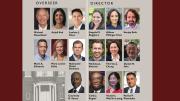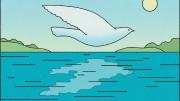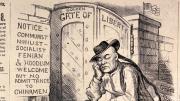Having brought his office in Massachusetts Hall into the personal-computer age (see "July 2, Day 1," September-October 2001, page 57), Lawrence H. Summers has now projected the Harvard presidency into cyberspace. The website for the office of the president (www.president.harvard.edu) offers users e-mail links to Summers, contact information for his immediate staff, and texts of statements on subjects such as the report of the committee on employment and contracting policies (released December 19--see "Living Wage: Next Stage") and on diversity (released January 2--see "War of Words").
The site also offers a selection of presidential speeches--in effect a real-time window, courtesy of the Internet, into Harvard's emerging agenda early in the twenty-first century, at the outset of the twenty-seventh president's term.
In a talk on primary healthcare at Beth Israel Deaconess Medical Center last November, for example, Summers not only spoke personally about his experience as a Hodgkin's disease patient at the beginning of his professorial career, but also gave high priority to sustaining biomedical research. Calling Boston the world leader in the field, he said, "It is...more important than any other trust that I hold to ensure that this excellence is retained and strengthened in the years ahead." Indeed, his emerging vision apparently extends well beyond Harvard: "I am convinced that the next Silicon Valley...will happen in the biomedical area," Summers said, "extending and improving the quality of human life. And it will happen where the most knowledge resides and where the best systems for its application exist....here in the Boston area."
In a nuts-and-bolts address at the Graduate School of Education, Summers--who is engaged in selecting a new dean--ticked off a list of four priorities he hoped scholars there would address: identifying, measuring, and disseminating educational "best practices"; applying new knowledge about cognition and neuroscience to the classroom; helping to make education the honored profession it needs to be; and designing incentives and systems of management and accountability to ensure that education operates effectively. That is an intriguing self-supplied account of how Summers--a formidable social scientist--analyzes problems and perceives the academic mission of one of the University's schools.
Not every presidential statement finds its way into the new medium. The winter edition of Colloquy, the Graduate School of Arts and Sciences alumni quarterly, excerpts a Summers talk on graduate education. In that speech, the president, who refers frequently to expanding Harvard's faculty ranks and accelerating recruiting, expressed an eagerness to "have more of the best [professors] before they have done everything that will make them the best"--in other words, taking risks to appoint professors earlier in their scholarly careers. (Here Summers spoke from personal experience, having been tenured at age 28.) He also raised the prospect that there will be "more new hiring at Harvard in the next decade than in any decade of the last century. We will shape the Harvard faculty for the first half of the twenty-first century." (In keeping with the tenor of the new century, Colloquy itself is on line, at www.gsas.harvard.edu/colloquy, so audiences far beyond the limited circulation of the printed publication can access those remarks electronically.)





